Your basket is currently empty!
Written by
Energy Related Products: What are boiler ErP ratings?

What does ErP mean on a boiler?
If you’re one of the many people who don’t know what Erp means?
And you’ve been looking for a new boiler, then you may have seen an ErP rating included in the descriptions. But rarely there is any information to explain what this means. Thankfully help is here!
In this guide, we’ll look at what ErP is and how a boiler achieves compliance. We’ll also consider what that means for your buying choices and the opportunity to reduce carbon emissions and energy bills.
Get your Fixed Price Boiler Quotes Online
New Gas Boilers with £0 Deposit & 0% Interest Finance Availble
Get the best quotes for boiler installation online in under 1 minute now
Boilers and Energy Related Products Directive (ErP)
The ErP is a European Union (EU) directive with the aim of improving energy efficiency and standards of performance of a wide range of products. The directive aims to encourage the manufacturers to reduce gas emissions from production, through to its use, and then to its disposal
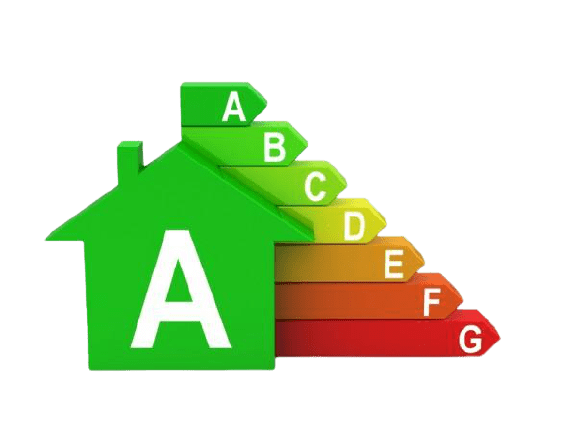
There are concerns over the impact that gas boilers have on the environment and there’s a push to consider renewable energy sources. However, right now many of those options are expensive to install and run.
That means it’s essential for modern boilers to be energy efficient and reduce dangerous gas emissions.
When we talk about measuring energy efficiency, it’s assessed by how effectively the boiler converts fuel into usable energy. So we want to know how much energy is lost during the heating process. Because that’s quite literally burning money. If you’re looking for the most energy efficient boilers, check out our guide.
Why is the ErP important to boilers?
The ErP regulations affect all products that have an impact on the environment during their life. In turn, this will help the EU to achieve what’s become known as the 20-20-20 target. So, that means a 20% reduction in energy usage and a 20% increase in renewable energies by 2020.
The regulations cover both domestic heating systems as well as commercial heating products.
To be ErP compliant, there are two elements for boiler manufacturers to consider:
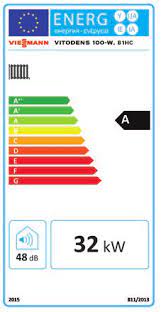
1. Ecodesign
This part of the directive refers to energy-related products. It sets minimum energy performance and environmental criteria. To be able to bear a CE mark and be available for purchase, a product must meet these requirements. In turn, you then know that you’re purchasing energy-efficient products.
2. Energy Labelling
The energy labelling aspect is designed to provide information for the consumer. You’ve probably already seen the energy labels on products such as fridges and washing machines as well as water heaters.
Energy labelling provides information on how that profit may impact the environment. This then allows an informed decision to be made before making a purchase. Visit energysavingtrust.org.uk for more information.
Get your Fixed Price Boiler Quotes Online
New Gas Boilers with £0 Deposit & 0% Interest Finance Availble
Get the best quotes for boiler installation online in under 1 minute now
SEDBUK boiler ratings
This was the system in place to classify boiler efficiency prior to introducing the ErP rating. Although this system also used letters to show how efficient the boiler was, it was calculated in a different way.
Because of the potential confusion, this might cause, the assessment of SEDBUK efficiencies was replaced by ErP ratings.
Seasonal efficiency assessments give boilers two different ratings, one for SAP winter efficiency and one for SAP hot water efficiency.
What does SEDBUK stand for?
SEDBUK stands for Standing for Seasonal Efficiency of Domestic Boilers.
SAP winter efficiency for boilers
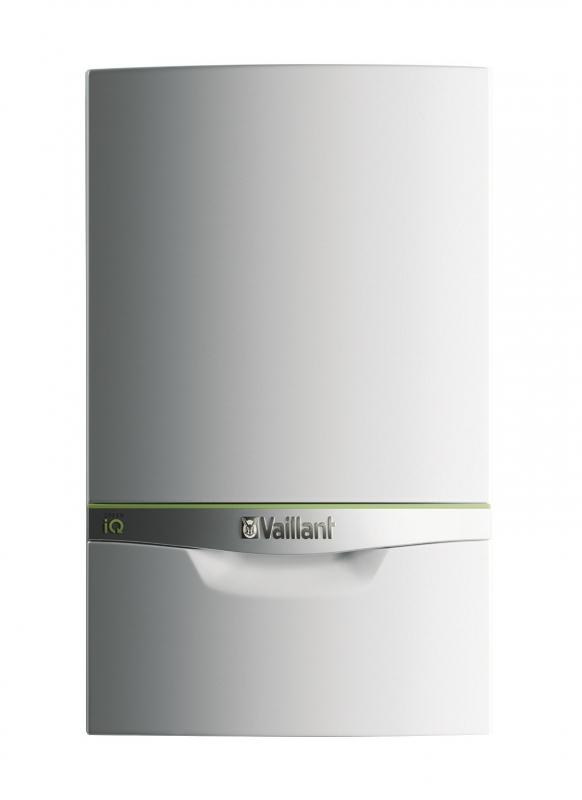
To achieve this rating, the boiler has to be assessed at an independent laboratory. The efficiency level relates to both space heating and hot water. Most modern boilers achieve a very similar level of efficiency on this assessment and so this rating on its own may not help you to find the most efficient central heating system.
SAP hot water efficiency
The SAP rating comes from measuring how efficiently the hot water is produced by the boiler. For this one, there are often quite big differences between different models. That means that this is the figure that you’ll want to pay close attention to when you compare boilers for their efficiency rating.
ErP and measuring boiler efficiency
The cost of heating your home can be up to half of your energy bill so it’s really important that a new boiler is as efficient as possible. And it’s not only energy bills that reduce when you have an energy-efficient boiler. It’ll also mean that you’re using less fuel which in turn reduces carbon emissions.
Under the ErP directive, boiler efficiency ratings go from A+++ for the most efficient boilers right down to F for those that are highly inefficient
Get your Fixed Price Boiler Quotes Online
New Gas Boilers with £0 Deposit & 0% Interest Finance Availble
Get the best quotes for boiler installation online in under 1 minute now
Combi boiler efficiency ratings
Combi boilers have an ErP efficiency rating for two different elements:
Space heating
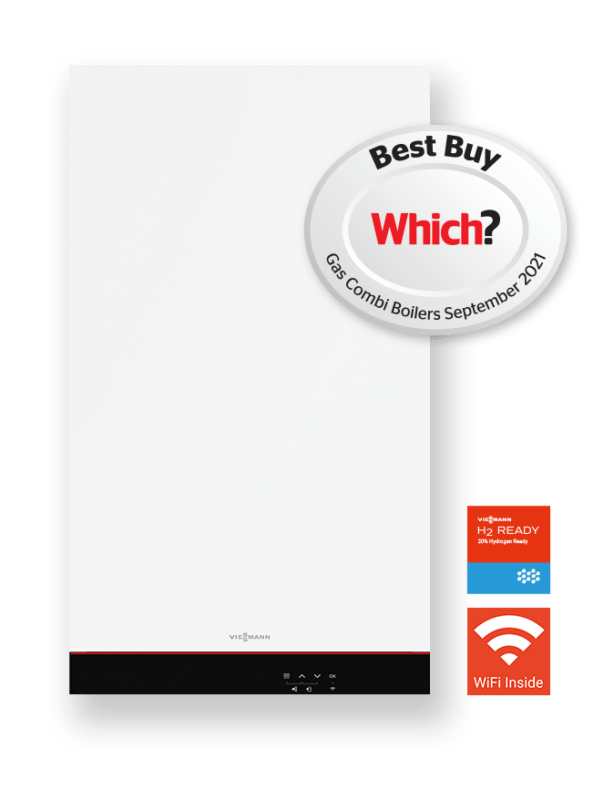
This is the letter under the symbol of the radiator. It defines the efficiency rating the boiler can achieve for heating your home.
Water heating
This is the letter under the symbol of the tap. It defines how efficient your the best combi boilers are at heating the water that’s then supplied through the taps and shower.
System and regular boilers efficiency ratings
For boilers that store heated water in a hot water cylinder only the space heating rating is provided.
Sound level
In addition to the efficiency levels, you’ll also find information on how much noise the boiler makes and that’s shown in decibels (dB). For boilers that are very noisy when operating, you’re going to see a higher number.
If you appreciate a quiet environment then this is going to be an important feature of your new boiler. Some boiler manufacturers, such as Worcester Bosch, have now achieved Quiet Mark accreditation for their low-noise boilers.
Boiler Plus
The UK government introduced ‘Boiler Plus‘ legislation in 2018. This required all new boilers to achieve an A rating which means at least 92% efficient and it became mandatory for combi boilers to be fitted with an ‘advanced energy saving measure’.
For other types of boilers, those that have a hot water cylinder, now need to be fitted with both time and temperature controls.
This legislation forms part of the building regulations, so it’s essential that engineers follow the requirements.
Get your Fixed Price Boiler Quotes Online
New Gas Boilers with £0 Deposit & 0% Interest Finance Availble
Get the best quotes for boiler installation online in under 1 minute now
Advanced energy-saving measures for boilers
1. Load compensation
This functionality requires the control and the boiler to be able to communicate with each other. With load compensation in place, the boiler is able to modulate the flow temperature depending on the room temperature.
2. Weather compensation
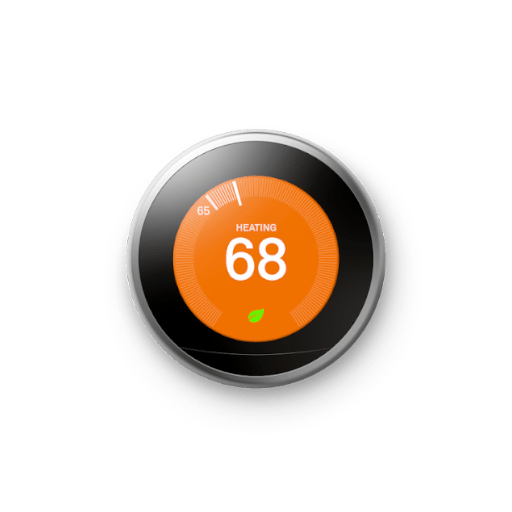
This advanced option allows the boiler to take into account the outside temperature when modulating the boiler flow temperature.
3. Smart control
Smart controls provide homeowner with the ability to program their boiler from an app on their phone. So no matter where you are, as long as you can get online, you can get control of your boiler’s operation.
With daily reports, it becomes easy to check energy consumption, reduce heating bills and enhance boiler efficiency.
4. PFGHRD
Standing for Passive Flue Gas Heat Recovery Devices, these systems are able to take advantage of the heat within the gases that usually disappear up into the flue. Produced from the combustion of gas in the boiler, the heat recovered from the gases can be used to preheat cold water.
This then means that there’s a reduction in how much fuel is used in producing hot water. In return, the boiler achieves an improved level of efficiency and you save money on your gas bills.
Which advanced energy-saving measure should be fitted on a boiler?
Boiler plus requires that just one of the four options is in place for all new domestic boiler installations. So that might then leave the homeowner wondering which one will give them the most efficient boiler. This is the time to chat with your gas engineer about the best boiler for your needs.
Condensing boiler vs non-condensing boilers
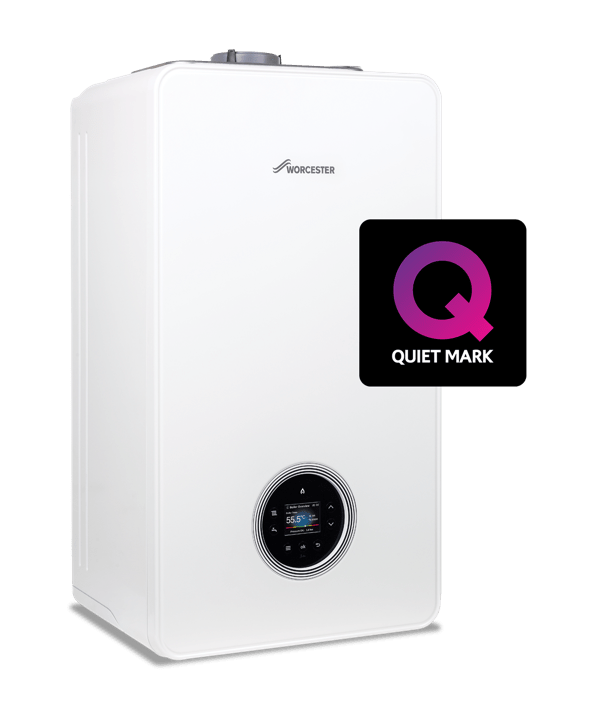
A condensing boiler is able to improve energy efficiency by converting water vapour condensation in the waste gases, into heat. The Energy Saving Trust estimate that non-condensing boilers tend to achieve an efficiency level of around 75%, while condensing boilers can achieve in excess of 90%.
Since 2005 it’s been a legal requirement for all new gas and oil boilers to be condensing. So that means that the likelihood of you moving into a property and finding a non-condensing boiler is pretty remote. If you do happen to find one, it’s likely to have a very low-efficiency figure so definitely time for a new boiler replacement!
Benefits of an energy-efficient boiler
So now that you know what the ErP is, it’s a good time to highlight the three key benefits of having an efficient boiler.
Lower heating bills
When it feels as if all the household bills are going up, having boiler efficiency in hand is going to mean lower fuel bills. The Energy Saving Trust estimate that you could make savings of over £300 a year when you have an A-rated boiler installed to replace an old G-rated system
More reliable heating
An efficient boiler will heat up your home much quicker and that’s then going to mean using less fuel.
Less damaging to the environment
When fuel is used in a more efficient way, there is less carbon released into the atmosphere. With the strong link between carbon emissions and climate change, it’s an area that we all need to be aware of our choices.
Get your Fixed Price Boiler Quotes Online
New Gas Boilers with £0 Deposit & 0% Interest Finance Availble
Get the best quotes for boiler installation online in under 1 minute now
Top ways to increase boiler efficiency and keep bills down
When you take care of your boiler it becomes easier to achieve higher levels of efficiency. Here are our top ways of reducing your fuel use.
1. Annual boiler service to keep the boiler working at its best
Annual servicing of your boiler can have a significant impact on efficiency. You might also find that it’s an essential requirement of your boiler’s warranty.
2. Bleed the radiators to make them more efficient
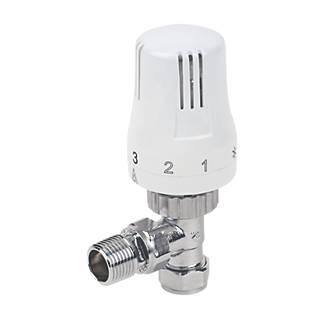
Over time air starts to gather in the heating system and that then causes a blockage. You’ll know when this happens because the radiators will be cooler at the top and warmer at the bottom. When this happens your boiler has to use more energy to push the water through the system and that means lower levels of efficiency.
When you bleed the radiator, the air is released and then the hot water can circulate freely. Now you’ll see boiler efficiency start to improve.
3. Regularly check the water pressure for efficiency
Boiler efficiency relies on there being sufficient water pressure. When the pressure drops, then the boiler has to work harder and so uses more energy.
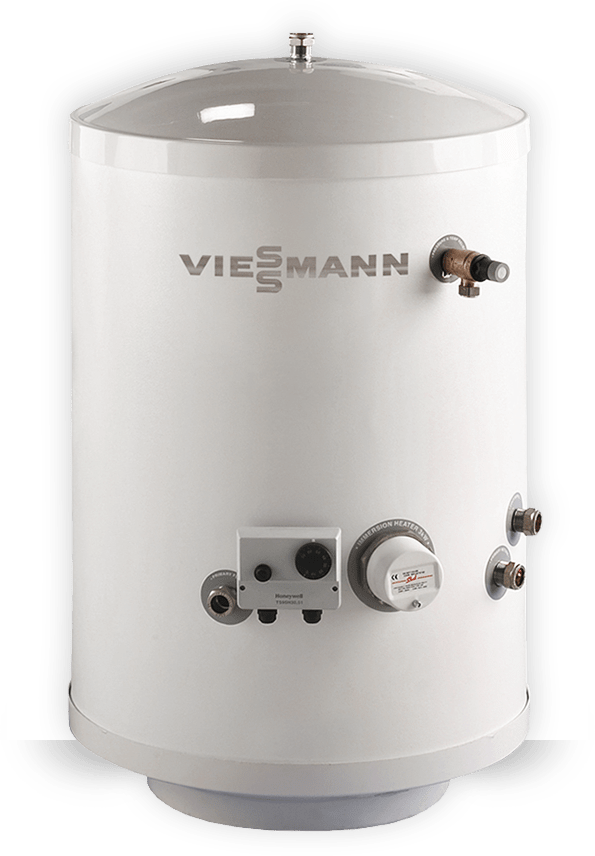
To check the water pressure just take a look at the pressure gauge which is usually on the front of your boiler. Most boiler brands require their systems to have a pressure level of between 1 and 2 bar.
4. Insulation of the cylinder and pipes to stop heat loss
If your property isn’t well insulated, to begin with, then even with the best boiler efficiency you’re not going to get efficient supplies of hot water.
If you have a system or regular boiler with a hot water cylinder, then it’s essential to ensure that it’s well insulated; that will keep the hot water warm for longer and ensure an efficient heating system.
5. Run the heating every month throughout the year to stop breakdowns
It can be tempting to turn off the heating in the summer and then forget all about it until the weather turns colder. However, this can really create problems.
When you run the boiler at least once a month throughout the year, you can prevent issues with seized mechanical parts and you’ll know that your boiler is all ready to supply heating during the colder months.
6. Use a smart thermostat to cut bills
The more control that you have over your boiler, the easier it becomes to achieve higher efficiency. A smart thermostat allows you to have instant control of your system whether that’s a combi boiler or a regular boiler. Check out our list of the best smart thermostats to help you choose the ideal option for your home.
The features that you’ll get with a smart thermostat include:
- Check the heating system vis your smartphone or tablet no matter where you are as long as you have wifi connectivity
- Assess the weather conditions and forecast and adjust the heating
- Learns your heating habits and pre-empts your requirements
- Knows when there’s no one at home and turns the heating off
- Alerts you if a window is left open in a room that’s being heated
7. Consider installing a new boiler
If your boiler is more than eight years old, then there’s a good chance that it’s no longer as efficient as it used to be. You might also need to start paying for repairs as parts become worn out. Boiler finance options are often available to let you get a new system quicker.
In recent years manufacturers have invested heavily in designing highly efficient new boilers, and so that’s going to mean savings as well as a higher level of reliability compared to older models.
The next step is to get a new boiler quote. Then you can be on your way to an efficient boiler, lower bills and a reduced carbon footprint.
Get your Fixed Price Boiler Quotes Online
New Gas Boilers with £0 Deposit & 0% Interest Finance Availble
Get the best quotes for boiler installation online in under 1 minute now
Written by
Get your Fixed Price Boiler Quotes Online
New Gas Boilers with £0 Deposit & 0% Interest Finance Availble
Get the best quotes for boiler installation online in under 1 minute now
What is in this article?
- What does ErP mean on a boiler?
- Boilers and Energy Related Products Directive (ErP)
- Why is the ErP important to boilers?
- SEDBUK boiler ratings
- ErP and measuring boiler efficiency
- Combi boiler efficiency ratings
- System and regular boilers efficiency ratings
- Boiler Plus
- Advanced energy-saving measures for boilers
- Condensing boiler vs non-condensing boilers
- Benefits of an energy-efficient boiler
- Top ways to increase boiler efficiency and keep bills down





